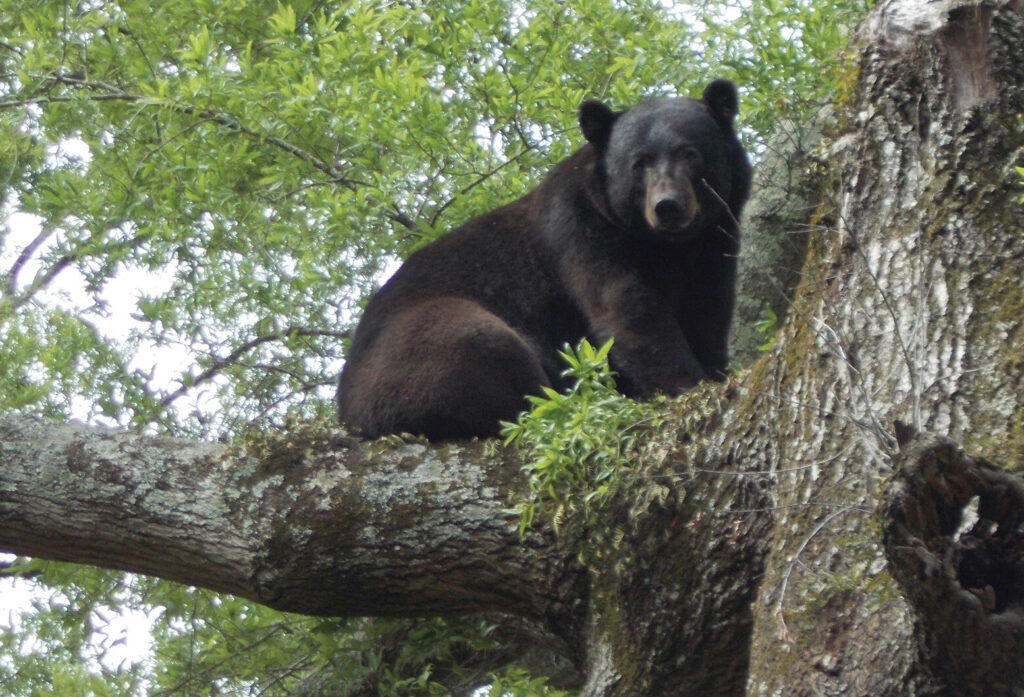OVERTIME OUTDOORS: La. black bear season could be created at next meeting of LWFC
Published 5:00 am Tuesday, October 17, 2023

- The Louisiana black bear may become fair game after the November regular meeting of the Louisiana Wildlife and Fisheries Commission. LWFC commissioners could set a hunting season on Louisiana black bears for 2024. The unique subspecies of the American black bear has thrived in the Mississippi River Delta and Atchafalaya Basin, where census numbers showed a combined 1,212.
A Louisiana black bear hunting season moves closer to reality at the next regular meeting of the Louisiana Wildlife and Fisheries Commission.
LWFC commissioners are expected to set the wheels in motion for a season, reportedly as soon as next year, with a vote in November after hearing a report on the current population at its meeting Oct. 5.
John Hanks, Louisiana Department of Wildlife and Fisheries manager of the large carnivore program, said, “We can certainly have a conservative harvest in limited areas.”
Several Teche Area outdoorsmen, some who are no longer with us, sadly, supported a bear season over the past few decades. They realized the Louisiana black bear population, dropped from the U.S. Endangered Species Act “threatened” list in 2015, had grown to a level that could be managed by hunters.
Today the Louisiana black bear population is 1,212, according to Hanks. He pointed out those numbers solely are from the state’s largest bear populations along the Mississippi Delta and Atchafalaya Basin (lower and upper), with the largest population in the Tensas National Wildlife Refuge.
“There are bears all over the state. This (number) is not all of the bears we have; it’s all of the bears we have censused,” Hanks said.
The current estimate, however, is perhaps 80-90% of the total population, he added.
Many rural residents of St. Mary and Iberia parishes certainly can attest to the growing number of Louisiana black bears. Following their experiences, they describe them as nuisance bears.
The latest push for a season has the support of key members of the Louisiana Legislature, including State Sen. Stewart Cathey Jr., R-Monroe, who was re-elected Oct. 14. Cathey wrote up a bill in 2022 to create a Louisiana black bear hunting season but shelved it last spring in favor of the commission’s plan. That bill prompted a flood of emails from people opposed to the idea.
Cathey and Richard Kennedy of Safari Club International were among those who testified at the LWFC meeting earlier this month in favor of black bear hunting in Louisiana.
Kennedy said, “Clearly we have a strong bear population. We’re in support of anything that moves forward a season.”
State Rep. C. Travis Johnson, D-Vidalia, introduced legislation this year requesting the LDWF study the feasibility of allowing a black bear hunting season in the Sportsman’s Paradise. Johnson said black bears are a problem for some of his constituents in his district in rural northeast Louisiana along the Mississippi River Delta.
A season would help control the population, he said, who emphasized instead of the word hunting to use the word management, referring to the text of his resolution.
“We’re not necessarily trying to hunt the black bears, but we are trying to manage the population as the population is continuously growing,” Johnson said.
State Rep. Neil Riser, R-Columbia, whose district is adjacent to Johnson’s, has said many of his constituents would benefit from being able to kill the species.
“It has become a nuisance to farmers. It’s become a nuisance to people in residential areas,” Riser said.
Louisiana black bears were fair game in the state before World War II. Louisiana’s 1939-40, hunting season rules and regulations showed a season set aside for bears from Nov. 1-Jan. 1 (1 daily, 5 in a season).
Louisiana black bears, one of 16 unique subspecies of the American black bear, all but disappeared from the state by the 1905s and 1960s. In 1992, the U.S. Fish and Wildlife Service granted the Louisiana black bear “threatened” status under the Endangered Species Act of 1973 because of overhunting and deforestation from timber and agriculture industries, according to LDWF. That same year, lawmakers designated the Louisiana black bear as the official state mammal.
Since then, a recovery plan was developed, a reintroduced population was established and habitat recovery started. Many observers would say it worked too well.
DON SHOOPMAN is outdoors editor of The Daily Iberian.





